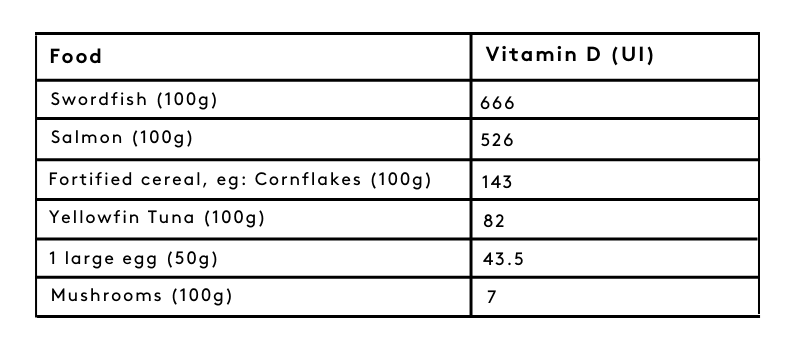As an essential nutrient for bone health, immunity and calcium absorption, vitamin D should be part of our diet everyday. This vitamin is especially crucial for children, who without it, can’t grow and develop properly.
In this article you will find:
- What Is Vitamin D?
- Where Is Vitamin D Found?
- Why Is Vitamin D So Important For Kids?
- How Much Vitamin D Should A Child Take?
- What Happens If A Child Doesn’t Get Enough Vitamin D?
- What Other Vitamins Should My Child Supplement?
- Take Home Message
What Is Vitamin D?
Vitamin D is a fat soluble vitamin that is extremely important for immunity and bone health in children. Commonly known as ‘the sunshine vitamin,’ vitamin D is formed naturally from sunlight. During winter months or periods where we stay inside more often, levels of this nutrient can drop.
Where Is Vitamin D Found?
Vitamin D is only found in few foods such as oily fish and eggs and is sometimes added to cereals or grains. However it is difficult to get enough Vitamin D from food alone. 1
According to the NHS, all children under the age of 5 should be taking a vitamin D supplement. In fact, between the ages of 1 and 10 can have up to 50 micrograms (2000 UI) of vitamin D per day. (2) To put that into perspective, the table below shows vitamin D levels in popular foods:

https://fdc.nal.usda.gov/
Why Is Vitamin D So Important For Kids?
Vitamin D is essential for healthy bones, and to control the amount of calcium in our blood. It is important at every stage of life, but especially for rapidly growing infants and teenagers. Vitamin D also plays a part in heart health and fighting infection. 1
Additionally, without enough vitamin D during pregnancy, your baby’s bones and teeth can’t develop properly.
How Much Vitamin D Should A Child Take?
Because vitamin D is so important, you’ll want to be sure your child gets enough. Giving your child a daily supplement or a multivitamin with vitamin D is the easiest way to do this.
In the UK it is recommended that babies from birth to 1 year of age who are being breastfed should be given a daily supplement containing 8.5-10 micrograms/day of vitamin D. Babies that are fed infant formula don’t need to have any vitamin D drops if they are having more than 500ml of formula daily, this is because formula has already been fortified with vitamin D.
It’s also advised that children aged 5 and under should be given a daily supplement containing 10 micrograms of vitamin D, especially in the winter months. This creates a base level of the nutrient which can be topped up with foods or sunlight exposure. It’s important to remember that vitamin D is essential for children and adults of all ages, so a supplement for children over 5 can be useful too.

